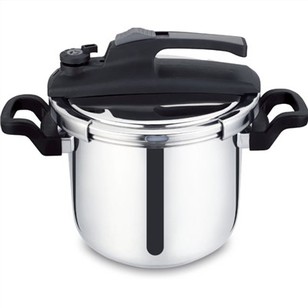Working Principle Of Pressure Cooker
The principle of pressure cooker is very simple, because the boiling point of water is affected by the air pressure. The higher the air pressure, the higher the boiling point. On high mountains and plateaus, the air pressure is less than 1 standard atmospheric pressure, and the boiling point of water is lower than 100 ℃, so water can boil under 100 ℃. Eggs are not cooked with ordinary pots. When the air pressure is greater than 1 atmosphere, the water will not boil until the temperature is higher than 100 ℃. The commonly used pressure cooker is designed based on this principle. The pressure cooker seals the water quite closely. The water vapor generated by water evaporation cannot diffuse to the air, but can only be retained in the pressure cooker, which makes the pressure inside the pressure cooker higher than 1 atmosphere, and also makes the water boil when it is higher than 100 ℃. In this way, a high-temperature and high-pressure environment is formed inside the pressure cooker, and the rice is easy to cook quickly, and it is quite crisp. Of course, the pressure in the autoclave will not be unlimited, or it will explode.






